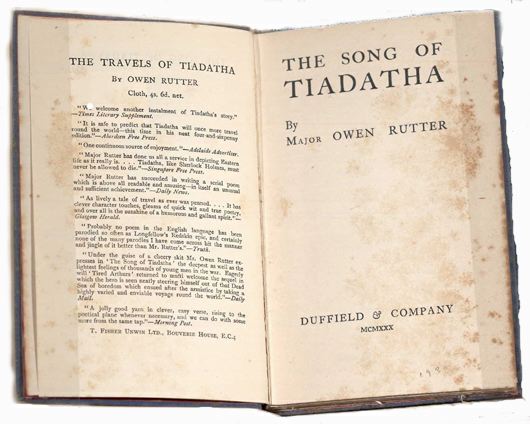From 'The Song of Tiadatha '

In this war the Hun has brought us,
Some have learnt to make returns out,
Some have learnt to write out orders.
Some have learnt the way to kill Hulls,
Some to lead the men that kill them,
Some have learnt to cope with bully,
Learnt to shave with army razors,
Learnt to make the best of blizzards,
Mud and slush and blazing sunshine,
Learnt to coax a little comfort
Out of bivvies, barns and dug-outs,
Learnt of things they never dreamed of
In July of 1914.And they all have learnt this lesson,
Learnt as well this common lesson,
Learnt to hold a little dearer
All tile things they took for granted
In July of 1914-
Whether it be Scottish Highlands,
Hills of Wales or banks of Ireland,
Or the swelling downs of Dudshire,
Or tile pavement of St. James's --
Even so my Tiadatha.So I leave him and salute him
Back in his beloved London,
Knowing that the war has one thing
(If no others) to its credit --
It has made a nut a soldier,
Made a silk purse from a sow's ear,
Made a man of Tiadatha
And made men of hundreds like him.And the world has cause to thank us
Cendresselles, September 1918
For that band of so-called filberts,
For those products of St. James's,
Light of heart and much enduring,
Straight and debonair and dauntless,
Grousing at their small discomforts,
Smiling in the face of danger.
Who have faced their great adventure,
Crossed through No Man's Land to meet it,
Lightly as they'd cross St. James's.
Eyes and heart still full of laughter,
Till the world had cause to wonder
Till tile world had cause to thank us
For the likes of Tiadatha.
Part XVII, "Home at Last," pp. 142-44.
Major Owen Rutter (1889-1944)